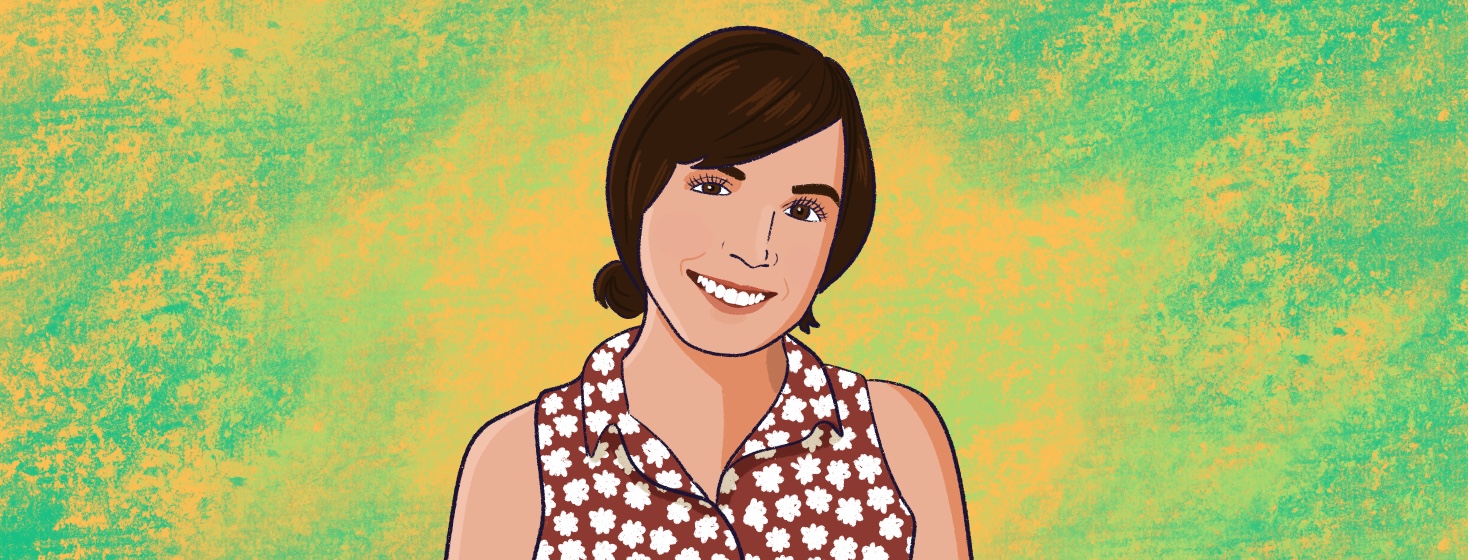Advocate Spotlight: Alisa
AdvancedOvarianCancer.net shares the stories and experiences of people living with ovarian cancer. We are highlighting the story of our advocate Alisa who was diagnosed with ovarian cancer in April 2019. Diagnosed at only 29 years old, Alisa was shocked when she learned she had advanced ovarian cancer. Since then, Alisa has been dedicated to sharing her story and supporting other women diagnosed with ovarian cancer.
This is Alisa's story...
Completely blindsided with my diagnosis
I was diagnosed with stage 3C low-grade serous ovarian cancer on April 26, 2019. Being just 29 years old at the time, I was completely blindsided by the news. I have always been a generally healthy person and had no idea that there was anything wrong with me until my annual women’s wellness physical when my gynecologist observed that my uterus felt enlarged during the pelvic exam. A transvaginal ultrasound later confirmed that there was a questionable baseball-sized mass on my left ovary.
However, I wasn’t officially diagnosed until my first debulking surgery. My long-term boyfriend and parents were the first to be informed of the surgical biopsy results while I lay unconscious on the operating table; whereas I found out the news several hours later as I awoke from the anesthesia.
Days later, I received the staging results; and months later, I learned that my genetic lab results were definitively negative. However, I also learned that various scientific tests conducted on my tumor demonstrated that my cancer cells are hormone-responsive, thus there was hope for an effective treatment option once my chemotherapy infusions came to an end.
From surgeries to chemo to hormone inhibitor
I first underwent in-patient surgery to remove my left ovary, fallopian tube, and a 9cm tumor surrounded by two liters of ascitic fluid. Upon discovering the tumor was malignant and that the cancerous cells had spread throughout my abdomen and colon, I proceeded with a second surgery to remove my right ovary and fallopian tube, uterus, omentum, and appendix, in addition to a resectioning of my sigmoid colon.
Six weeks after my second debulking surgery, I began the first of six rounds of taxol and carboplatinum chemotherapy treatments - once every 3 weeks. My various surgeries and chemotherapy regimen all began in April 2019 and officially ended in October of that same year. I have been taking a hormone inhibitor (Letrozole) every day since then, and thankfully I remain NED (No Evidence of Disease) to this day.
Becoming my own advocate
When I was first diagnosed, I chose to become my own advocate. I already knew that I was dealing with a rare form of a rare type of cancer at a very young age, and I quickly learned after just one Google search that the survival statistics were not particularly promising.
I researched online incessantly, brushed up on current scientific research papers, and sought out in-person and online support groups through my doctor and hospital resources, as well as via social media platforms.
When I finally decided to go public with my story, it became one of the most therapeutic choices I could have made for myself. Most importantly, being able to connect with other women going through similar situations helped me find a community and feel less alone.
Staying positive has been paramount
While I know this may sound cliché, I really believe that maintaining a positive attitude has carried me through this emotional roller coaster of a journey with so much grace. As previously mentioned, ovarian cancer survival statistics can appear grim at first glance, so I realized that I needed to call upon myself to be my own cheerleader even during the darkest of times. Most importantly, staying positive has helped me accept that I am not a victim, nor am I a statistic.
Ovarian cancer does not discriminate
I choose to advocate for ovarian cancer because it’s something that I never knew about until getting diagnosed myself. I think ovarian cancer deserves so much more funding, research, and overall awareness because it can be so deadly. Despite being most prominent among women in their 60s and 70s, I am clearly living proof that ovarian cancer does not discriminate.
I always strive to share my story with others as much as possible. I frequently advocate for the importance of annual exams and share the symptoms of ovarian cancer at every opportunity. If I can help just one person discover their diagnosis at an earlier stage, then I truly believe that all of my efforts have been worthwhile.
Something most people don't know...
I have a Master of Fine Arts degree in English with an emphasis in non-fiction writing. Years prior to my diagnosis and my subsequent involvement in ovarian cancer advocacy, I have been the managing editor for an animal rights online newspaper and non-profit foundation for the majority of my adult life.

Join the conversation